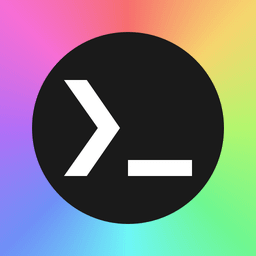Ah ok, yeah catppuccin and rosé pine look similar. Looks nice in any case!
- 31 Posts
- 951 Comments

 3·2 days ago
3·2 days agoBuying, probably not because economic coercion/exploitation is still coercion. In a communist society where exchange has been abolished, someone letting you drink their breast milk is probably vegan.

 1·2 days ago
1·2 days agoDon’t you need protein to grow though? I would imagine you’d need a lot of protein (relative to body weight ofc) in the first 6 months of life, cause I imagine your body is building a lot.
Looks nice. Is that Rosé Pine?
I should do a pastel theme sometime. I think they look really nice, but my eyes need a dark theme.

 3·3 days ago
3·3 days agoLibreOffice is a good productivity suite in its own right. And there’s a fair amount of Mac-specific FOSS. Some people just like the Apple ecosystem I guess.
The default. I know I can change it but idc what my ringtone is. As long as it alerts me to calls it’s fine.

 4·4 days ago
4·4 days agoNo, I’m not arguing that we should be users of Microsoft. You’re still not understanding what I’m saying. I don’t use Microsoft’s services, including their free ones. Software that happens to be hosted on GitHub is not Microsoft’s software.
You can do whatever you want as an individual. But as a political actor, you should be participating in organised boycotts, such as BDS’s boycott of Microsoft. BDS’s boycott is already fairly wide-sweeping, going as far as to ask people to e.g. stop playing Minecraft and Skyrim, even if they already own the game. Avoiding using Microsoft’s products like this is effective because, even if you’ve already bought the game, you lend Microsoft more cultural capital by proliferating their products.
BDS has not, on the other hand, called for a boycott of all software that happens to have a GitHub repo. If you think they should do that, take it up with BDS. If BDS called for such a boycott, it would get much more momentum behind it.
As it currently stands, you are boycotting all software that has a GitHub repo on your own. This is not going to have any effect. You are going to be hard-pressed to get people to join your boycott. What kernel do you use? The Linux kernel has a GitHub mirror. The majority of FOSS projects where collaboration occurs off of GitHub still have a read-only GitHub mirror. Is your boycott suggesting that everybody should be using OpenBSD? That’s going to be a very hard sell.
BDS has achieved huge victories because it offers targeted boycotts that the average consumer is perfectly capable of doing, and it has a mass movement behind it. There are also grassroots boycotts that have been organised outside of BDS, such as the Starbucks and McDonald’s boycotts, but again, these caught on because they had the backing of people active in the movement and were willing to organise said boycotts. You’re a random Lemmy user who, if you are serious about organising a boycott, you’re in the entirely wrong place to do so. You won’t achieve anything doing what you’re currently doing.
You’re welcome to make whatever consumer decisions you want, but don’t confuse that for political organising.

 321·4 days ago
321·4 days agoMaybe you shouldn’t be chomping at the bit to kidnap people and lock them in cages.
I’ve never experienced that tbh but I use WASD, occasionally mouse scrolling as in when the screen moves when your cursor is near the edge of the screen. Unless you mean that kind of mouse scrolling causes the bug, in which case it doesn’t seem to happen for me. Glad there’s a fix though

 1·4 days ago
1·4 days agoYou wouldn’t see it if you’re not on .ml. The removed censoring is clientside so I’d see it using the .ml hosted web client.
Games mostly work. If they have a native Linux version they work (and more games have a native Linux version than you may expect). For Windows-only games, there’s a compatibility layer called Proton (which is a gaming-focused fork of a more general compatibility layer called Wine) that lets you run Windows executables on Linux. IME most Windows games run flawlessly with Proton. You can check games on https://www.protondb.com/ to see how well they run on Proton.
Rimworld has a native Linux version, and I’ve not had any problems with Rimworld mods from Steam workshop on Linux. Never tried modding Skyrim so can’t say on that.

 13·4 days ago
13·4 days agoI’m also opposed to “using [Microsoft’s] free stuff”; I’m arguing that using software that happens to use GH isn’t using MS’s stuff at all.

 301·5 days ago
301·5 days agoI don’t see a reason to avoid using software hosted on GH. I moved off GH when MS bought it, and all that entailed was no longer hosting my own software on GH, and using alternative FOSS git forges. That still has a similar effect, and when a critical mass of devs move off GH, the rest will follow suit. The main draw of GH is that everything’s on there; when that’s no longer true, it will no longer be the main git forge. Especially once Forgejo adds ActivityPub integration; I imagine that’ll speed the process along a lot.
A lone user boycotting all software hosted on GH is realistically not going to make any devs move their projects off GH. You may say that it doesn’t have to be a lone user, but I think you’ll be hard pressed to get a whole movement of people refusing to use any software hosted on GH.
I also think the boundaries of your boycott are just too ambiguous. What if you download the software from somewhere other than GH, and it just has a GH repo? Is that ok with you? Is it that you just don’t want to touch MS’s servers? What about software where the GH repo is just a read-only mirror, and the main collaboration/development happens elsewhere, like a GitLab or Forgejo instance? I would rather struggle to see an argument for refusing to use software in either of those cases.
You only need to overwrite the drive with random data once. Then, as long as every OS install uses FDE, there’s no need to repeat the process.
The reasons why you do the full disk wipe are:
- To hide the size of the encrypted data by making encrypted data indistinguishable from empty space
- To erase unencrypted data previously stored on the drive
Both of which only need to be dealt with once, so long as you don’t write unencrypted data to the drive after doing the wipe.

 2·6 days ago
2·6 days agoPornhub? I don’t think .ml censors “porn” (I can see your comment just fine), just some slurs/offensive words afaik.
Edit: And I can see my own comment just fine.

 18·7 days ago
18·7 days agoThank god someone scratched out a letter in that mysterious word. Otherwise I may have seen something obscene. Now I have no idea what is meant to be written on that block 🤔
A lot of Linux distros are set it and forget it these days. Nvidia can be finicky though, so i suggest a distro that installs proprietary nvidia drivers for you—I think Linux Mint and Bazzite do that, though I’m not personally familiar with either.
The other thing is music prod which I am not familiar with. I’ve heard that there’s a lack of Linux software for music prod but hopefully some other users who know more can explain what the situation is like on Linux these days.
Steam won’t pose a problem. Steam does something called Proton, a compatibility layer allowing Linux users to run Windows game, and the vast majority of Windows games run flawlessly with Proton. Similarly, you shouldn’t have to worry about losing saves, as Steam Cloud should save and transfer them all automatically.

 71·7 days ago
71·7 days agoPalestinians living in '48 borders will have “Israeli” IP addresses. I know it’s an apartheid state but it’s not gotten to the point where they hand out different IP addresses based on ethnicity lol. Jewish settlers compose a majority in '48 borders now but Palestinians are still a significant minority in '48 borders. Not to mention that, like you said, Israel controls internet access in the OPT—for instance, a lot of the esims people have been buying for Gazans are “Israeli”.

 3·7 days ago
3·7 days agoAnd a lot of native speakers just straight up use incorrect grammar. eg loads of native English speakers say things like “could of”, use “then” instead of “than”, use punctuation incorrectly, do incorrect sentence structure, etc.
I don’t mean to be prescriptive about language. Of course it evolves based on usage. But in any formal environment, such as an academic environment, there are still certain defined and canonised English grammar rules that you would be penalised for breaking, and most learners want to learn those rules even if most casual speakers don’t follow them.










I think you’re still avoiding the point:
The point isn’t that you have to follow the BNC specifically. The point is that announcing you’re not using any software hosted on GH, on a small social media platform, is far from organising a boycott. If you are serious about organising a boycott, that is what you do in the movement, with the masses. As it currently stands, you are simply making a personal consumer decision.
Personally, I don’t think it’ll be possible for this to become a mass boycott (which it needs to in order to have effect), just because you’re going to struggle to explain to everyone what GitHub even is let alone how to boycott any software that’s hosted on it. That’s why the demand to boycott GitHub ie not host your own software on there is far easier; that only applies to people who make software, who do know what GitHub is and understand how to not use it. If you don’t know what GitHub is then you’re already boycotting it. Meanwhile, your version of the boycott requires teaching people what git is, what a git repo is, and what a git forge is, and then giving them a very long list of software that they need to boycott in order to join you. For the reasons that BDS explains in terms of their tactic of targeted boycotts, that’s not going to work, because in practice very few people will boycott the full list of software and everyone will boycott a few GitHub repos and those repos will be different for each person.
At the end of the day, boycotting is a political strategy to force change through. It’s not about showing how moral you are. If you can’t get a critical mass of people with you, your consumer decision is as impactful as your decision of what shirt to wear today.
That’s still avoiding the real problem of defining strict boundaries for your boycott. It is still entirely unclear to me how I could join you even if I wanted to. What are you proposing we boycott? I adhere to BDS, who have given pretty unambiguous guidelines on how to boycott. Even their Microsoft boycott accounts for “do as much as you can”; they acknowledge that some people will be forced to use MS products, and encourage people to move away from them unless they have no choice. That’s understandable enough and the average person knows exactly how to join that boycott if they want to.
Like I said, if you’re serious about this, you need to go somewhere other than Lemmy. And if you’re not serious about this, then stop pretending you’re making a political decision, and accept that you are just making a personal consumer preference.